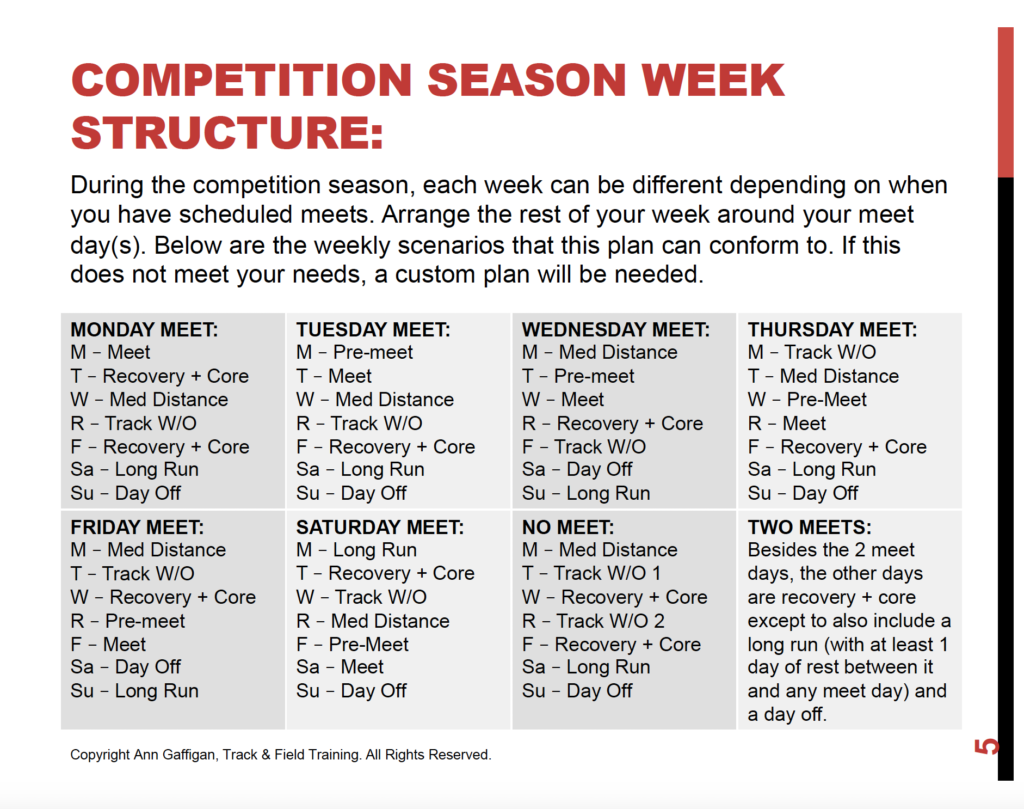Q:
Could provide some specific instructions on how much runners need to warm up for each event? 3200, 1600, and 800. How many strides? Etc.
A:
In general your typical warm-up should:
- Start an hour ahead of race time
- Include light jogging of 10-15 minutes
- Include dynamic stretches and drills like the hamstring scoop stretch butt kicks and high knees, lunges for the purpose of stretching and not muscle burn, leg swings on a wall, and torso twists. You’re trying to activate the major muscle groups while raising the body temperature.
- Then include a few short bursts of speed (strides) – the number doesn’t matter, somewhere between 5 and 10.
- Cause the athlete to feel like their heart rate went up and their body got warm, gradually throughout the warm up
- Also include time for athlete’s choice – use the bathroom, meditate, listen to music, complete superstitions, etc.
When they are allowed onto the track for the start, they should do 1-2 final strides and light stretching, especially if they had to sit or stand still in a holding area beforehand.
